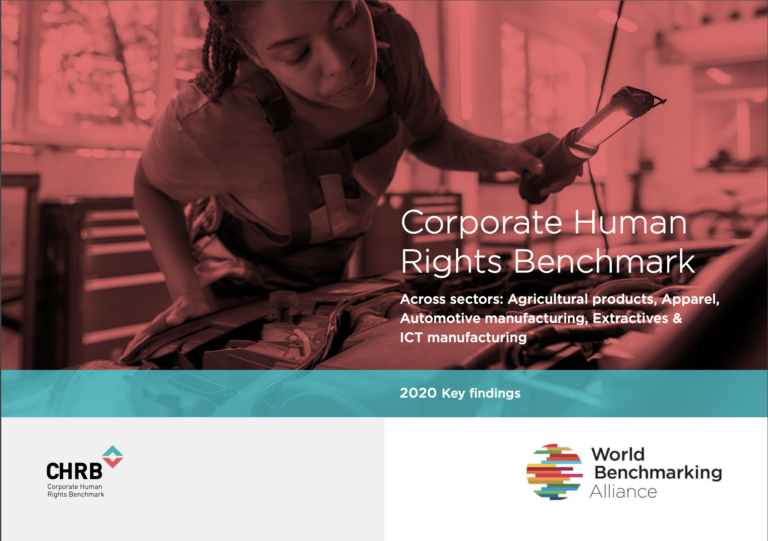The CHRB is part of WBA, which seeks to generate a movement around increasing the private sector’s impact towards a sustainable future for all. The CHRB produces benchmarks that rank global companies on their human rights performance.
WBA is developing multiple benchmarks that will eventually measure and rank 2,000 keystone companies – companies that have been identified as most influential in contributing to the SDGs across seven critical systems transformations. These are decarbonization and energy, food and agriculture, circular, digital, urban, financial and social.
The social transformation, which focuses on respect for human rights, equality and empowerment, sits at the heart of WBA’s model and underpins and enables the six other transformations. All 2,000 keystone companies will be assessed against a common set of core social expectations on business conduct, including human rights, with the core social indicators being informed by the CHRB methodology. The social transformation will explore key cross-cutting topics, such as living wages and gender equality, using spotlight benchmarks to focus on specific issues that deserve deeper analysis and that can drive much broader change.
WBA recognizes the market failure around business respect for human rights and how this undermines the achievement of the SDGs. To address this market failure, WBA believes human rights benchmarking can create positive competition, drive accountability and provide evidence for policy intervention. As such, the CHRB provides the very first spotlight benchmarks within the Social Transformation, reflecting the critical role respect for human rights has for achieving the 2030 Agenda for Sustainable Development

